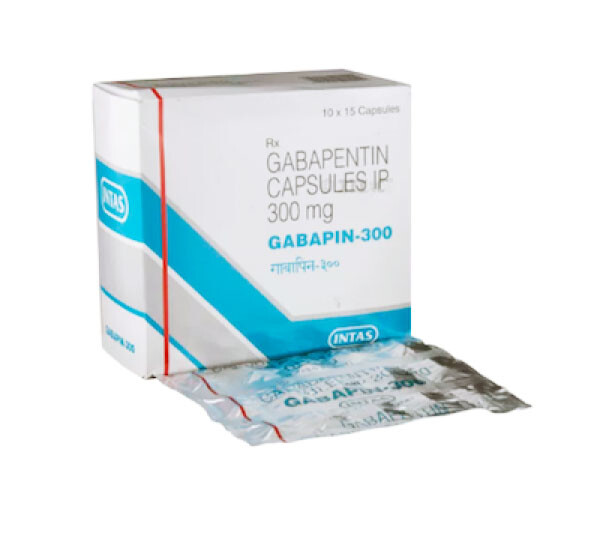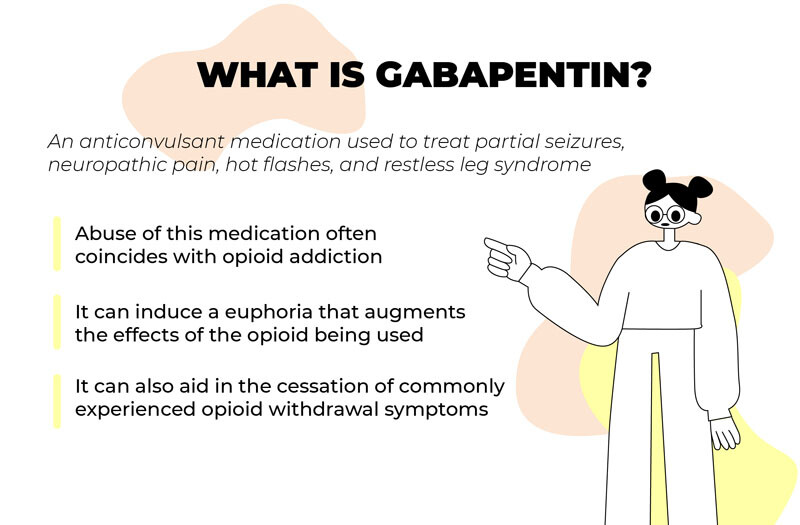Order Gabapentin 100mg, 300mg, 400mg, 600mg, 800mg otc
Are you looking for the best website to order Neurontin (Gabapentin)? You are welcome to buy Neurontin (Gabapentin) 100mg, 300mg, 400mg, 600mg, 800mg from our partners, the pharmacy store online. Our team recommends them as they have huge experience in working with medicines. Besides, they offer quality pills at discount prices, quick worldwide delivery, and the best customer support.
Alternate names of Neurontin
Abaglin, Aclonium, Algia, Alidial, Alpentin, Anabix, Aneptir, Apo-Gab, Apo-gab, Bapex, Blugat, Bosrontin, Brilian, Compulxine, Dineurin, Edion, Epiven, Epleptin, Equipax, GabaLich, Gabacalma, Gabadoz, Gabagamma, Gabahasan, Gabahexal, Gabalept, Gabalich, Gabamerck, Gabamox, Gabanet, Gabaneural, Gabaneurin, Gabanox, Gabantin, Gabapen, Gabapentina, Gabapentine, Gabapentinum, Gabapin, Gabaran, Gabarone, Gabaront, Gabaseis, Gabastad, Gabatal, Gabatem, Gabateva, Gabatin, Gabatine, Gabator, Gabatur, Gabax, Gabenta, Gabental, Gabentin, Gabex, Gabexal, Gabexine, Gabictal, Gabin, Gabiton, Gaboton, Gabrion, Gabtin, Gabture, Galepsi, Ganin, Gantin, Gapentek, Gapenten, Gapentin, Gapridol, Garbapia, Gatilox, Geabatan, Gordius, Kaptin, Katena, Logistic, Medivapom, Mengaptrix, Mirgy, Molnarux, Mycovit-gb, Nepatic, Neugabin, Neuran, Neurexal, Neuril, Neurogabin, Neuropen, Neuros, Neurostil, Neurotin, Nopatic, Normatol, Nupentin, Nurabax, Oxaquin, Pendine, Pentin, Peronten, Progresse, Rangabax, Ritmenal, Semerial, Seni-Ven, Symleptic, Sympleptic, Tebantin, Ultraneural, Ultraneutral, Yalipent, Zincobal-g
 |
 |
 |
 |
 |
 |
 |
 |
 |
 |
Neurontin is most often used to treat epilepsy and painful conditions; however, there are many other uses of this drug as well. It comes in tablets, capsules, and liquids. The substance can also be given to cats and dogs. Learn more about the drug on this page.

What Is Neurontin, and How Does it Work?
Neurontin (Gabapentin) is often used for treating epilepsy, migraines, nerve pain, as well as some other conditions. It is often taken twice daily, but the dosage depends on the prescribed treatment. Treatment often takes at least two weeks since this is how much the drug requires to start working. There are some side effects, but they are rare, and most often, the side effects are mild.

This drug can be taken by adults and, in some cases, children who are at least 6 years old.
Neurontin can be taken by adults and, in some cases, children who are at least six years old.
Is It Addictive?
This medicine can cause addiction, but it most often occurs among people who have already experienced abuse of drugs and substances. This often happens because the effects of Gabapentin are often similar to the effects of marijuana. It’s been reported that around 15% of participants in surveys who were taking the drug during these studies used it to get high.
Abuse of Neurontin might lead to some negative consequences, including Gabapentin substance overdose. A person who abuses the drug might experience anxiety, dizziness, nausea, as well as some other symptoms of addiction.
It is essential to report Neurontin once you or your loved ones experience it. Otherwise, it might have serious consequences that might influence your health.
What Is Neurontin Used for?
Neurontin is most often used to treat seizures, including epileptic seizures. It can also help with nerve pain caused by diabetes, shingles, and other diseases and conditions. It is considered a strong painkiller and can provide significant pain relief for people who are suffering from different conditions.
Remember that your doctor should tell you what Gabapentin is used for in your case. Don’t use this drug without a prescription.
Anxiety
Neurontin is most often used for treating anxiety, and it shows a rating of 7.9 out of 10 when it comes to reviews from patients. 75% of patients experienced a positive effect, while 15% experienced a negative effect. Many people take Gabapentin for anxiety daily.
Pain Relieve
Neurontin is often used with other medications to stop pain and seizures. It might relieve nerve pain and serve as a painkiller. It is also used to relieve nerve pain and can serve as an antiepileptic drug. Neurontin for pain is considered to be effective and is often prescribed in different cases.
Insomnia
Patients who have insomnia might be prescribed this substance since it can treat insomnia by improving sleep quality and slow-wave sleep. It is also suitable for treating sleep disturbance. However, if the drug starts impacting other areas of life and results in negative consequences, it is better to choose another medicine for improving the quality of sleep.
Neurontin Dosage and Duration
Neurontin substance dosage depends on the disease and age. It can be taken with and without food.
Dosage for epilepsy: the starting dose is 300 mg orally daily, 300 mg 2 times daily on day two, then 300 mg 3 times a day on day three. The recommended dose is 300-600 mg three times daily.
Dosage for Postherpetic Neuralgia
Neurontin may be taken on Day 1 as a single 300 mg dose, Day 2 as 600 mg/day (300 mg twice daily), and Day 3 as 900 mg/day (300 mg three times daily).
Dosage for Epilepsy with Partial Onset Seizures
For patients 12 y.o. and older, the starting dose should be 300 mg per day; the recommended dose is 300 mg to 600 mg three times a day; in some cases, a dosage up to 2400 mg was administered, but it is usually not recommended.
For patients aged 3 to 11 years, the starting dose is 10 mg/kg/day to 15 mg/kg/day, and it should be given in three divided doses; the recommended dose is 40 mg/kg/day.
Dosage for Senior Patients
The dose should be chosen based on creatinine clearance values in these patients since seniors are often more likely to have decreased renal function.
What Should I Do If I Forget a Dose
If you miss your dose, you should take it as soon as possible. However, if it’s almost time for your next dose, you should skip the previous one. If you take a double dose, you might experience some adverse effects.
Overdose
Neurontin overdose is possible. This is why it is essential to take the drug as prescribed and not change your dose without any directions from your doctor. It might negatively impact your treatment and make you sick. In any case, it is better to talk to your doctor before increasing or decreasing the dose.
Symptoms of Overdose
- It’s getting harder to breathe;
- double vision;
- loose stool;
- slurred speech.
What to Do If You Are Overdosed
If you or a person near you overdose on Neurontin, call 911 or an ambulance immediately. The drug cannot be removed on its own, so surgery is required in this case. Here is what you can do if someone new you has overdosed: roll the person toward you on the side, bending the top leg to ensure that their hip and knee are at right angles. Tilt the head back, and stay with the person at all times. Calm the person down.
Medical attention should be sought immediately. If you overdose and feel like it is hard for you to make a call, find someone near you who could do that. Overdose should be taken care of immediately; otherwise, the consequences might turn out to be very serious.
Interactions with Other Medications
Many drugs cannot be combined with Neurontin and might cause severe side effects. Gabapentin interactions might result in several side effects.
Neurontin might interact with such drugs and medications as losartan (there have been minor impairments reported when these two drugs were combined), naproxen ethacrynic acid, caffeine, mefloquine phenytoin, magnesium oxide, cimetidine, sevelamer, and other drugs.
One clinical study stated that some interactions with morphine are insomnia, hallucinations, chorea, spatiotemporal disorientation, and even psychosis.
The drug’s properties might be modified when combined with other medications. If you take any other drugs and can’t avoid taking them, it might be better to find an alternative to this drug. Consult your doctor to determine what other drugs might be used.
Neurontin and Alcohol
Neurontin and alcohol cannot be mixed. Most often, there are no severe side effects when this medication is taken alone. However, whenever a patient consumes alcohol, no matter how much of it, they increase the risk of severe side effects. This means that if there were supposed to be any side effects of the drugs, you would feel them as if they are doubled or tripled.
It is better to avoid driving if you’ve had alcohol and Gabapentin, even if it’s been a few days. This is when you might start experiencing some side effects.
Both Neurontin and alcohol might influence your cognitive function. If two substances are combined, it might result in worsened mood, mood changes, and changes in your decision-making capabilities. You might also experience trouble breathing or other problems.
Some other side effects of Neurontin and alcohol are:
- drowsiness;
- anxiety;
- lightheadedness;
- nausea and vomiting;
- coordination problems;
- headaches;
- diarrhea.
Don’t drink alcohol while taking Gabapentin. It is also better to avoid its consumption even when you aren’t taking this drug since alcohol might cause some severe dysfunctions as well as problems with anxiety.
Neurontin Warnings

Neurontin warnings are based mainly on the age and condition of a patient. This drug might cause allergies, so it is crucial to have an allergy test before taking it. Children and seniors are the groups that should avoid drug intake since the drug might influence kidney function. It can be used sometimes to treat partial seizures, but most of the time, this drug is not recommended. Here are a few more health conditions and groups that might be put in danger if the drug is taken:
For People With Certain Health Conditions
Epilepsy: if you decide to stop taking Neurontin, you better do it slowly. If you suddenly stop taking the drug, you might experience seizures that would last for 30 minutes or more.
Children with epilepsy should not take Neurontin since it might cause severe problems and side effects. Children might start having problems with their behavior.
Kidney problems: this substance might not be safe for you since it influences how your kidneys work, and your body might process this drug more slowly. Before taking the drug, it is better to consult your doctor.
Pregnancy
Neurontin is not usually recommended for pregnant women. Contact your doctor to learn more about the recommendations and alternative medications.
There are not enough studies on such groups as pregnant women. During animal studies, there was no connection made between the drug and possible harm to the fetus. However, animal studies do not always show accurately.
Consult your doctor before taking the drug. It should be taken only if it is necessary for your health and the benefits of the treatment outweigh the possible consequences.
Breastfeeding
The medicine might get into the milk and the baby’s organism. This is why the drug should be taken cautiously, and before doing it, it is better to consult your doctor.
Side Effects
The drug can cause side effects, as well as any other drug from the same class. Here is a review of Gabapentin’s painkiller side effects.
Common Side Effects
These common effects might happen in 1 in 100 people. These are often mild and will go away shortly after you’ve started taking the medicine. However, you should still talk to your doctor if any occur:
- feeling sleepy;
- tiredness/fatigue;
- dry mouth;
- blurred vision;
- headaches;
- problems with memory;
- nausea/vomiting/diarrhea;
- swollen arms and legs;
- difficulties with getting an erection (men);
- weight gain.
Severe Side Effects
These are more severe side effects, and you should contact your doctor immediately after experiencing them:
- yellow skin and whites of your eyes (this could be a sign of jaundice);
- hallucinations;
- long-lasting stomach ache;
- muscle pain and weakness;
- bleeding;
- bruises;
- thoughts of hurting yourself.
Allergic reactions are also possible. They include:
- skin rash;
- trouble breathing and talking;
- swelling of your mouth, throat, face, and lips;
- wheezing;
- infection;
- chest/throat tightness.
Contact your doctor and/or ambulance immediately after getting an allergic reaction to the drug. Gabapentin’s side effects can be severe, and they should not be ignored.
How to Cope with Side Effects
This chart will show you how to deal with different side effects of the drug:
|
Feeling dizzy and tired |
Wait for the side effects to wear off. If they don’t after two weeks of treatment, contact your doctor |
|
Vomiting/diarrhea |
Drink enough water and avoid taking any other medications without consulting your doctor or pharmacist first |
|
Mood swings |
Talk to your doctor |
|
Nausea |
Try taking the substance with food or a snack |
|
Weight gain |
This often happens because this drug can make you feel hungry. Try having a balanced diet that would include foods that are low in calories
|
|
Headaches |
You should start having more rest and drinking more fluids. This might also be a result of alcohol consumption. Talk to your doctor or pharmacist if the side effect doesn’t go away |
|
Problems with memory |
Discuss this with your doctor. This might be a sign that the medicine isn’t good for you, so you will have to change it |
|
Blurred vision |
Stop driving and doing anything that requires you to use tools and machines that require precise moves. Discuss the side effects with your doctor if it doesn’t go away |
Neurontin Withdrawal Symptoms
Gabapentin withdrawal symptoms aren’t common, but it does happen. There were several reports about addiction, withdrawal, and dependence. And even though such situations are rare, they are much more often than people imagine. It happens more often because not everyone reports their addiction.
There has been a connection found between Gabapentin intake and intake of at least one other substance, such as alcohol. If combined, those might cause addiction and withdrawal symptoms. It has also been noted that people who have a Gabapentin addiction used to be addicted to other drugs and substances before.
Gabapentin withdrawal usually begins after 7+ hours after the last dose was taken. It appears that withdrawal often happens without any intentions: patients ran out of the drug, which resulted in withdrawal.
Some of the symptoms are:
- agitation;
- sweating;
- tremor;
- fast heartbeat;
- drowsiness;
- trouble sleeping;
- gastrointestinal symptoms.
If you or people you know experience withdrawal, please get in touch with your doctor and seek medical attention immediately. This is a serious issue, and it should not be ignored.
Neurontin for Dogs and Cats
Gabapentin medicine for dogs and cats is used in the same way as for humans: to treat painful conditions. It can be given to your pet only if a doctor has prescribed the drug. Some medications are often given off-label, and Gabapentin is among those.
It is administered by mouth. It can be given with or without food, but if your pet refuses to take the medication and vomits it, it is better to give it with food on an empty stomach so that your pet would feel more hungry and willing to eat before consuming the medication. Gabapentin comes in the form of capsules, pills, and liquid, but not all forms can be used for pets. The liquid form of the substance should not be given to your pet.
Gabapentin for cats can reduce signs of stress and can help with neuropathic pain. If the cat is given the drug before the veterinary exam, the cat will feel less stressed out and scared of the vet.
There might be some side effects for your pets. Those include sleepiness and problems with coordination. Pets can be allergic to Gabapentin due to some of the ingredients, so you should be aware of any allergies before administering the drug. There might also be some interactions with medications, even if those are just vitamins. Consult your vet to determine if the drug should be taken.
Neurontin, also known as gabapentin, has several advantages when treating neurological diseases. It is mainly prescribed to treat neuropathic pain resulting from diseases such as postherpetic neuralgia, fibromyalgia, and diabetic neuropathy. Neurontin is also used as a supplement to treat partial seizures, providing seizure control and enhancing the general quality of life for people with epilepsy. For patients needing long-term care for neuropathic pain or epilepsy, it is a flexible and well-tolerated alternative because of its comparatively low risk of medication interactions and minor side effects.



































